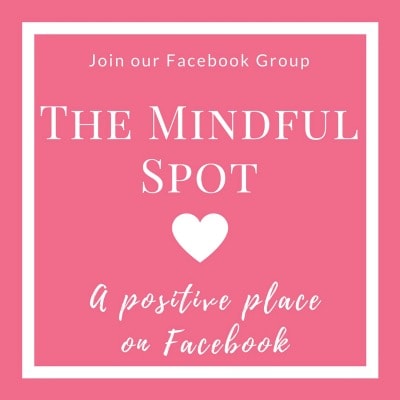![]()
I have measured my life by Octobers for almost 3 decades.
My life skidded off its original path on October 4, 1991 when I went from virgin to rape victim in the blink of an eye. When the MeToo Movement erupted last year, I was elated, triggered, and still in the grips of grief after losing my mother. I stayed quiet and didn’t raise my hand. Two itty-bitty words just didn’t seem adequate to give voice to the deepest pain of my life.
The confirmation hearing of Brett Kavanaugh has shaken me to my core. It has been both riveting and repulsing to watch. As a teenage rape victim who is now a middle-aged woman, I can relate to Dr. Ford on so many levels. In our polarized society I see that many people simply can’t. Or won’t. I wonder: if given the opportunity to gain an intimate look what it is like to survive an assault, would people open their minds?
The MeToo Movement has been incredibly successful in illuminating the breadth of sexual assault in America. The next step it uncovering the depth of devastation caused by just a single rape. I call it the long shadow, because rape becomes a part of a victim’s identity that never completely leaves her.
Some people still don’t get that.
Judges set aside hard-won convictions and commute sentences. Huge chunks of our society just can’t comprehend why a high school assault should be relevant decades after it occurred. Convicted rapist Brock Turner’s father successfully argued that prison time was “a steep price to pay for 20 minutes of action.”
For the victim, let me assure you, it is never just 20 minutes. That idea stems from the mistaken assumption that rape is a finite, though terrible, experience. For a rapist, that’s true. Once it’s over, it’s over. For the victim, the assault is just the beginning of a trauma that will shape her life for years, and even decades, to come.
This is why I’m sharing my story: to shed light on that shadow. Maybe it will help others see how treacherous and nuanced recovery is. Maybe this light will diffuse the shadow a bit, and help me walk on a brighter path. Maybe nothing will happen, because the problem isn’t knowing, it’s caring. I can’t control that. I can only tell my truth.
#MeToo
I broke my left radius bone when I fell ice skating. It was a clean break. After six weeks in a cast, the fracture healed. Life went on. But if you were to x-ray my left arm, the scan would still show evidence of my fall. The fault line would show the new growth that took place where I healed. No matter how long I live, the fracture of my left radius, something that happened in just a spit second, will be etched on my bones.
Rape is the same. Even though it has been twenty-seven years since I was raped, the trauma is embedded in the skeleton of who I am. I was, and will always be, a rape victim.
I was sixteen years old when I kissed an older boy at a teen dance club. He wanted to talk to me alone. He told me I was pretty. Flattered and tipsy, I traded the safety of the club for the privacy of the parking lot after he promised me we would only kiss.
Once we were alone, his demeanor changed completely. He didn’t try to coax or pressure me into sex. He outright forced it which caught me off balance. It happened so fast and my bewilderment was his first weapon. Next was his body. He was a foot taller and much heavier. He pressed his weight on to my chest, expelling the air from my lungs in a giant whoosh. This turned my would-be screams into whispers. I couldn’t breathe.
“Stop. Please stop. Don’t.” I managed. “I’m a virgin.”
And then, I wasn’t.
When he entered my body, I left it and never fully returned. I counted the dots on the ceiling of the car until I passed out from suffocation. I woke to my face pressed against the cool glass of the back windshield. He did other things. Confused, I didn’t understand what he was doing at the time, but I felt completely degraded. Lower than low. What’s next? Is he going to kill me? It was a relief when I was ordered to put my clothes back on, and was then dropped back into my life as if nothing had happened.
I drove home as if nothing had happened.
I didn’t shower for days. As revolted as I was by the sheen of his fluids that covered me, I couldn’t face being naked. Exposed. Sexual. I hated my body. It was the source and constant reminder of my pain. From the moment of my rape, I completely shut down my sexuality. Fear became my default setting for sex. Orgasms require letting go―to abandon oneself to the throes of passion. How could I ever let my guard down again? I began carving out an identity that excluded my body. My sense of self became entirely ephemeral.
![]()
My rape remains unreported. Any statistic you’ve ever read about sexual assault doesn’t include mine. At first I was stunned into silence. Too much had happened in such a narrow window of time. Within about a half an hour I had lost my virginity, been raped and suffocated, saw and felt a penis for the first time, and experienced physical violence. I was on sensory overload and couldn’t begin to process it all. Words failed me.
The one thing I wanted most was for it not to have happened. Speaking of my rape would bring life to something I wanted to bury: my new truth. There was never a natural opening to bring it up. I would have to make waves: sound waves and shock waves that would change the landscape of my life forever. Being a rape victim was now my internal reality; the most I could do was shield myself from having it take over my external identity.
I kept mum as I waited to see if my secret would keep. Plan B didn’t exist and nothing about my rape was protected. When my period finally came, it felt like I had dodged a bullet. No permanent damage! Whew–I thought. I can finally put this behind me and pretend it didn’t happen.
No such luck.
In the weeks and months that followed, my silence turned on me. Being quiet didn’t make it go away. The rape reverberated in the silent chamber. When I couldn’t take it, I tried to tell my story. Not to my mother or the police, that would bring it to a level of reality I still couldn’t face. But my story begged for a voice, so I spoke to my closest friends, counselors, and even a rape support group. I never got very far, never sputtered much more than the fact that I was raped, because every single time I introduced myself as a rape victim, I was interrupted. I was corrected.
Rape Victim or Rape Survivor?
From the very first time I told someone my story, they always wanted to change my words. Nobody wanted me to be a victim. Survivor is the preferred term. It was all well-intentioned. Meant to be supportive. A vote of confidence. But what I really needed from the moment I said no in that car, was for my voice to be heard. My voice. My words.
The first lesson of rape was that my words didn’t matter. The power of language fails before the power of the body. The word no was stripped of its meaning as I was stripped of my underpants. People say rape is not about sex, rather it’s about power. During a rape the most powerful word in our language is rendered useless.
No means nothing.
The rape continues.
This was a difficult story to tell, and the constant interruptions eroded the tenuous nerve behind my voice. My words were overruled, which was exactly what happened during the rape. Inside of that dynamic, I slipped back into my role of powerlessness. It wasn’t a conscious choice; it was a visceral reaction born out of the rape itself. Inside my head I was screaming JUST LISTEN TO ME, but outside the most I could muster was to mumble an objection as I walked away. Even the women who were trying to fortify me by insisting I use the language of strength, stripped away the little autonomy I had left by changing my words. If you want to give someone power, listen. Just listen.
In the aftermath of my rape, whenever I unwittingly held my breath, it cued a flashback to being suffocated. When someone interrupts you mid-sentence, you not only hold your tongue, but also your breath. The strongest physical sensation I felt during rape was suffocation. Not being able to breathe turned me into a wild-eyed animal. Primal instincts kicked in. Interrupting me was the same thing as silencing me. Holding my breath triggered the sensation of suffocation and beamed me right back to that car where I lost my words.
![]()
Here is the truth: rape broke me. It shattered me into pieces that never fit back together again. I am a living mosaic of my former self. Whoever I may have been on track to becoming lost her destiny the moment I was overpowered. My spirit changed. My life changed. Americans shrink from unfathomable loss, so rather than seeing the actual devastation of a victim, we try to rephrase the facts into a story of the personal grit of a survivor.
I saw a greeting card once that depicted a girl who had just passed a fork in the road. She had a knapsack and was clearly on a journey. The signpost that marked the fork had arrows in both directions. The path she had chosen said, “This way.” The path she had not taken was labeled, “No longer an option.” That’s life. Rape put me on a path that excluded other options. My sexuality would always be complicated and riddled with anxiety. I would never be carefree again. I would attempt suicide a few months after being raped. It would take me almost ten years to sleep through the night.
If you suffered rape and call yourself a survivor–good for you! I sincerely wish you well and admire your strength. I have no desire to edit the words of your story. I wouldn’t presume. If that word fortifies you, I hope you use it all the time.
By the same token, it is not a character flaw in me simply because that word doesn’t resonate with my truth. It doesn’t mean I am weak. Or wrong. Or, worse yet, like my rapist’s hot breath whispered in my ear, that I liked it. Nobody likes being a victim, especially the victim.
The word survivor never really fit me. Survivor implies two things: finality and victory, neither of which was even remotely true for me for years. Although the physical rape ended quickly, I was terrorized by nightly flashbacks. In one sense the rape was over, but in another sense, it wouldn’t stop. And victory? I was falling apart mentally, emotionally, and spiritually. I was in the midst of a nervous breakdown, and swiftly plummeted into the sinkhole of depression.
To me the term survivor means, a person who got out alive. But that is not enough, and it negates the lifelong effects of rape. It makes rape sound like a crisis, not a crime. I choose to call myself a victim, because I am quite literally a crime victim. A crime was committed against me.
People don’t like to hear the word victim, because the story is sad and we all want happy endings. We like heroes and strong women. We like triumph-over-adversity and picked-myself-up-by-the-bootstrap narratives, even at the cost of truth. Americans don’t like the idea of victims. We want to ignore the pervasiveness of sexual assault and its profound impact. We want victims to overcome obstacles immediately just like a sprinter leaps hurdles to win Olympic gold.
![]()
It is hard for any victim to return to the scene of the crime. But the scene of the crime for me is my body. Is sex. I have never left the scene of my crime. There is the expression to want to crawl out of one’s skin. That was me. There was no police tape to partition off the scene of the crime with the words: DO NOT ENTER. DO NOT CROSS. Instead, as the victim of rape, I was sentenced to a life in which I would never, ever leave the scene of the crime. I will never escape it.
What A Flashback is Like
How do you move past a scene that replays itself in your mind every night?
The thing about being raped is that it doesn’t just happen once. I’m not talking about repeated assaults, although statistically speaking women who have been raped once are more likely to be raped again (#MeTooTwo). I’m talking about how a single rape is, in fact, endless. Close your eyes, be raped. Close your eyes, be raped. Close your eyes, be raped. This is what flashbacks are like. For three months straight and then at regular intervals for almost a decade, I woke up—gasping for air—to the sensation of being raped. Flashbacks aren’t like a movie on a screen happening to someone else. It’s a five-sense recreation of actual rape: He is on me. I can’t breathe. He is in me. Will I die?
It is terror. It is trauma.
I was stuck―frozen in time―frozen in rape for ten years. A pattern of anxiety was established in my mind during the aftermath of rape. My neurocircuitry changed. I was biologically rewired to process all my fears at a high-alert level. Sleep became a battleground, and I always lost. There was no respite, no break, no chance to catch my breath. Those sleepless nights that became weeks that became years weren’t all about rape, but eventually all my fears followed the path rape carved in my psyche. Insomnia and flashbacks became the way I processed all of my worries, even minor, inconsequential ones.
I resisted victimhood the best I could. I learned to function on precious little sleep. I armed myself by sleeping with a knife under my pillow. Sometimes it made me feel safe, but other times I feared an attacker would see it first and use it against me. I played and replayed scenarios about how to wield it effectively. Other times, when I determined the knife would be a liability and left it in the kitchen, I spent the night panicked about how it would feel if I was attacked and my hand searched for an absent weapon. Understand, this is what I did instead of sleeping during the end of high school and the beginning of college. I didn’t question it. I was in survival mode.
Survival, survivor. Can you see how inadequate that word feels to me?
Rape-Related PTSD
My rape happened in the early nineties, about the same time as the Gulf War. It wasn’t until soldiers came home from Operation Desert Storm that we as a society began to understand the nature of Post Traumatic Stress Disorder, that one can relive a trauma over and over again, and that the mental repetition of a trauma creates even more damage, some of which can be permanent. It wasn’t until the end of the nineties that I ever heard that term applied to crime victims.
I was sitting in a writing workshop when my classmate shared an essay about the time she and her family were held at gunpoint during a home invasion robbery. No one was raped. No one was killed. It would seem like no permanent harm was done. Insurance covered the losses.
But her family split into two camps. Some of them recovered from the experience, others couldn’t, including my classmate. She experienced flashbacks and was treated for PTSD along with her mom. Her dad and sister moved on more easily. Their brains didn’t glom on to the trauma and drill it deep into their psyches.
What can I say, some people are lucky?
Her essay shed light on the aftermath of my own rape. I saw my teenage body curled in the shape of a fetus at night, willing my spine to spread an exoskeleton across my back. Protect me, my constant prayer. I saw the knife I slept on for three years. It wasn’t a stretch to deduce that I had Rape Related PTSD. Although at that point, six years after the fact, the damage had been done.
Victim-Bashing in America
There is a lot of victim-bashing out there. It’s not directed at rape victims specifically, rather the whole concept of people being victims in general. We treat victimhood as a conscious choice. A cause, rather than an effect. Consider these phrases:
You are allowing this one experience to define you.
She paints herself into the role of a victim.
Don’t be a victim.
She always plays the victim card.
She chooses to be a victim.
Rather than throwing a protective arm around a victim, our culture teaches us that victimhood is an undesirable state of being chosen (mostly by women) as a tool for emotional manipulation. We put a stopwatch on pulling it together after a trauma. The allotted time is about the size our attention span, short. Get over it, already!
![]()
If so many women seem to feel comfortable in the role of a victim, rather than analyzing their personalities for defects, maybe we should consider how many women are literally victims of rape and abuse. The problem isn’t the label; it’s the crime plastered all over us in the first place.
A friend of mine once shared how much he has always loved birds of prey. He found them majestic and powerful. I was completely taken aback, because I couldn’t imagine loving a predator of any sort, even in nature. I have always related to the field mouse scurrying for cover. We are all built so differently. Our experiences mold us in more than a metaphorical sense. Our brains are in a constant state of construction, creating synapses and neuropathways in real time. Experience changes our very biology.
Strength isn’t always a choice. Neither is weakness. Trauma assigns us the role of victim and conditions our responses.
Think about a rescue dog adopted from a shelter after suffering abuse from his first owner. The dog is happy to be living in a safe home now. He loves his new owners and is delighted to be a part of a family. But every time it thunders or a car backfires, he turns into a maniac. He tears apart pillows, shoes, stuffed animals, anything he can gnash his teeth into. He paces and whimpers incessantly. The owner tries to calm him down, which helps but doesn’t completely abate the dog’s anxiety.
What do you think about the dog? Is he playing the victim card? I mean, he is currently safe and his owner did try to comfort him, so shouldn’t he just get over it? Is he really going to let this one experience from his past define him?
Does that sound crazy? Do you understand that even though the dog is now in a protected environment, he has a conditioned response to loud noises caused by a trauma? Do you recognize that even though he isn’t in any actual danger, his fear is real and he is helplessly acting on it? One last question, do we offer more compassion to rescue dogs than we do to rape victims?
![]()
Our experiences define us. It’s how we learn to live in this world. We have a biological imperative to recognize danger and avoid it in the future. When a rape victim feels anxious, afraid, or silenced, regardless of the how unrelated to rape the trigger may be, her emotional reaction can bring her back into the role of a victim. She knows her part and plays it.
I can hear the argument against my words as I write this. I’m not saying that a rape victim shouldn’t make strides to heal. I’m not advocating actively building an identity as a victim. But isn’t it unfair to judge a rape victim for incorporating her experience as a part of her identity? It’s unrealistic to exclude a major life event from one’s self portrait, and to say otherwise is an inadvertent message of shaming the victim for failing to limit the extent of her trauma. It’s the aftermath equivalent of what did you expect wearing a skirt so short?
Victim shaming is victim blaming.
The Long Shadow
Healing is the work of a lifetime, and just like the rescue dog, some of our primal responses may never completely go away. Fifteen years after my rape, I thought I had mostly put it behind me. Flashbacks were rare. I actually had a boyfriend. I was 31 years old and teaching English to high school seniors.
One day after school an 18 year old student barged into my classroom furious at me for his failing grade. He was bigger and taller than me; physically, he was built like my rapist. Chills ran down my spine as he directed his male aggression towards me. I edged our conversation towards the door as I wondered what scene we were playing out: a kid raging against a teacher or a man raging against a woman?
I didn’t know what to do. He didn’t say anything that would warrant a disciplinary report. I was reacting to his energy. His palpable anger frightened me. He stepped up to the edge of my space bubble and towered over me. What should I do?
As a teacher, I’d say that this student needs to experience the consequences of his actions. Give him the F he earned. As a rape victim, I should diffuse the danger. Better to sacrifice his education than my safety. As an adult woman, I should prevent a young man having a worldview where he is rewarded for hostility and intimidation. As these questions circled, another one pressed on my mind: Was I accurately interpreting him, or was the echo of my own assault coloring my perception?
The answers aren’t easy. Neither are the questions.
Something that lasted less than an hour cast a shadow spanning fifteen years into my life. Or more. Where is the edge of the shadow? Am I past it yet? Shadows change with time, sometimes disappearing when the sun is directly overhead. Other times they stretch the world to gross distortion and darken the path forward. They never really leave us though, do they? Peek-a-boo. I see you.
It has been twenty-seven years since I was raped. I have lived more of my life as a rape victim than an innocent. In so many ways my current life conceals my identity as a rape victim.
When I was young and dating, it was always at the forefront of my mind. While applying eyeliner for a night out with my girlfriends we always discussed how we would never allow ourselves to be moved to location B if were we attacked. Seriously, Oprah taught us it was better to risk being killed on the spot, than to submit to a change of venue which would no doubt involve torture. We discussed this knowingly, without a thought as to how messed up our society is that we had to accept living in danger as a way of life. If I wasn’t going out with friends, that meant either being with a man or being alone. Both were risky scenarios requiring constant vigilance. Every moment of dating was an Are You a Rapist? Test administered by me.
But now I am married. I am a mother. I am middle-aged. A friend joked about how we no longer needed to worry about being rape victims. We are too old. No longer desirable. Of course that is not completely accurate, but there is a kernel of perverse truth in it. A wave of relief washed over me. Being a young, blue-eyed blond American can feel like walking around with a post-it labeled Rape Me on your back.
Other than that comment, the subject of rape rarely comes up anymore (until #MeToo, that is), except when people tell me how lucky I am not to have a daughter to worry about. I have two sons, a husband, a home, a dog and three chickens. My life revolves around libraries, grocery stores, and playgrounds. It’s almost like rape doesn’t exist in my world anymore.
Almost, but not quite.
Triggers and Tripwires
Rape is still a word that makes me extremely uncomfortable. I don’t like to hear it uttered from anyone other than myself or another victim. That’s not realistic, but whenever I hear the word rape, I can’t help but suck in my breath. My heart is being tossed around the room with each utterance. I keep my eyes wide open and my mouth shut while my equilibrium soars overhead in a bean bag toss of conversation. I wait to see where the word will land, if I will splatter. When the word is finally dropped, I gulp air in relief. I’ve never told anyone that.
It’s about control. I want control of that word. I want control of every conversation about rape. I can easily relinquish that control to another victim, but I am wary of a nonvictim’s ideas about rape. When I was younger, I interrupted and intervened every time someone mentioned the word. I needed to steer the conversation someplace safe. Now I am much more likely to sit and watch how it plays out, though I am never at ease.
I know this doesn’t sound fair, but unfairness is an essential component of rape. We have to live with it. When I say I want to control the word rape, it means there is a deep-seeded part of me that is compelled by instincts beyond the reach of logic to seize control the subject that still controls a part of me. You are commenting about a movie; I am crossing a minefield.
You know what floors me? I never once questioned why I was raped. That seems ludicrous to me now, but at the time I felt I had all the answers.
Why me? I made a bad choice.
Why rape? That’s the way it is.
I’ve been told not to blame myself. I realize that I was the victim, but how could I not regret getting into that car? How could I not regret taking sips of vodka smuggled from my friend’s brother earlier that night?
The larger question of why I was raped was that I simply accepted it as a part of life with a vagina. History is riddled with stories of women being raped, even down to the ancient Greek myths. I’ve read statistics that 1 in 4 college women are raped. It never occurred to me to question it. I am a female; some of us get breast cancer; some of us get raped. As much as I abhorred it, on another level, I accepted rape as a fact of life caused by either bad choices or dumb luck.
![]()
I failed to imagine a world where I could live in safety. I have walked through my entire life as if the only path available to me was on a balance beam. One false move and I fall to danger. There is no room for fatigue or distraction. Every step must be calculated. I must always proceed with caution. The world may be big and wide, but I am confined to a narrow well-lit path, one foot in front of the other in a straight line, legs crossed tightly at all times.
![]()
Over the years I have cultivated a series of habits to keep myself in a healthy state of mind. I can’t take my mental stability for granted, so I practice daily yoga and meditation. I not only avoid scary movies, but also previews of scary movies. Horror isn’t fun if you’ve lived through it. I avoid triggers. I nurture important relationships. I write. I pray. I actively practice gratitude. I complete an elaborate ritual to put myself to sleep every night, which almost always works. When I notice myself slipping into anxiety or depression, I stop and take heed. Even though I have learned to stand in my strength, I am acutely aware of how fragile I am.
When I look over what I have written here, I am struck by the forcefulness of my tone. Although my true voice is cutting through, I am not used to hearing so much pain spill forth from me. It seems like a relic of my past, except, I barely had to scratch the surface of this subject before I started to bleed. Rape left an indelible mark on my life, just like the fracture of my left radius bone.
I feel tempted to tie up my tale in a nice bow for you, to paint a picture of how I healed. But, no. No. I won’t let the story of my rape turn into a fairy tale with a happy ending. My 43 year old self might have a different life and a more expansive perspective than the 16 year old me who was raped, but it is my younger voice that finally deserves to be heard. If she is screaming, so be it. She is raw. She is angry. She is broken. And, my God, she is common. But don’t worry too much about her. It’s not that bad.
After all…I survived.






This shoild be required reading for all rapists, the only thing they should be allowed to read. As a former victim multiple times, I am heavily struck by the fact that rapists get away with so much, that they get to continue their lives while they leave us trapped and suffocated in the emotional and physical memories of trauma. IT IS NEVER FORGOTTEN. Even though you migjt “move on”. I cant tell you how important your sharing has done for me, and I’m positive for many others. Thank you.